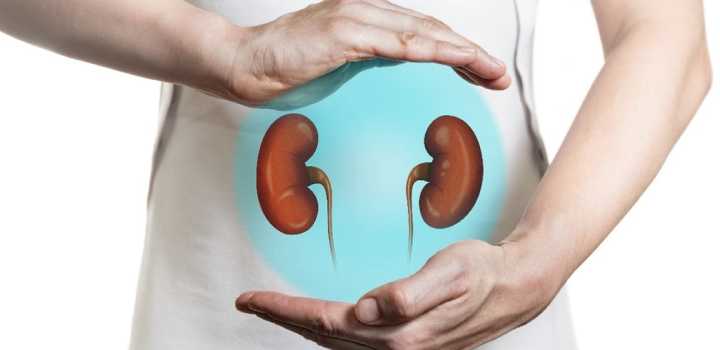Kidney failure is a serious health condition that affects millions of people worldwide, and women are particularly at risk. According to the National Kidney Foundation, women are more likely than men to develop chronic kidney disease (CKD), a condition in which the kidneys gradually lose function over time. If left untreated, CKD can progress to kidney failure, also known as end-stage renal disease (ESRD), which requires dialysis or a kidney transplant to survive.
As a leading provider of kidney care, Clinical Renal Associates understands the importance of raising awareness about kidney disease, particularly among women. In this blog post, we’ll explore some of the common causes of kidney failure in women and discuss strategies for preventing this condition.
Causes of Kidney Failure in Women

There are many factors that can contribute to the development of kidney failure in women. Some of the most common include:
Diabetes: Diabetes is a chronic condition that affects how your body processes glucose (sugar). Over time, high blood sugar levels can damage the kidneys, leading to CKD and eventually kidney failure.
High blood pressure: High blood pressure, or hypertension, can also damage the kidneys over time. This is because the kidneys play a crucial role in regulating blood pressure, and when they don’t function properly, blood pressure can rise to dangerous levels.
Autoimmune diseases: Certain autoimmune diseases, such as lupus and rheumatoid arthritis, can cause inflammation in the kidneys, leading to CKD and kidney failure.
Urinary tract infections (UTIs): UTIs are more common in women than men, and if left untreated, they can spread to the kidneys and cause damage.
Polycystic kidney disease (PKD): PKD is a genetic condition in which cysts develop in the kidneys, eventually leading to kidney failure.
Preventing Kidney Failure in Women

Fortunately, there are many steps women can take to prevent kidney failure. Some of the most effective strategies are discussed below:
Manage diabetes: If you have diabetes, it’s crucial to work with your healthcare provider to keep your blood sugar levels under control. This may involve taking medications, making dietary changes, and getting regular exercise.
Manage blood pressure: If you have high blood pressure, it’s important to take steps to lower it. This may involve making dietary changes, taking medications, and getting regular exercise.
Quit smoking: Smoking can damage the kidneys and increase the risk of kidney failure. If you smoke, quitting is one of the most effective ways to reduce your risk.
Stay hydrated: Drinking plenty of water can help prevent UTIs and keep the kidneys functioning properly.
Get regular check-ups: Regular check-ups with your healthcare provider can help detect kidney disease early, when it’s most treatable.
Manage autoimmune diseases: If you have an autoimmune disease, it’s important to work with your healthcare provider to manage your symptoms and prevent kidney damage.
Maintain a healthy weight: Being overweight or obese can increase the risk of diabetes, high blood pressure, and other conditions that can lead to kidney failure.
Clinical Renal Associates is dedicated to providing comprehensive kidney care for women and men of all ages. Our team of kidney specialists includes nephrologists, nurses, and support staff who are committed to helping patients manage kidney disease and prevent kidney failure.
If you are at risk for kidney disease or have already been diagnosed with CKD, we offer a range of services to help you manage your condition. These may include:
Kidney function tests: We use a variety of tests to monitor kidney function and detect signs of kidney disease early.
Blood pressure management: We work with patients to manage high blood pressure and reduce the risk of kidney damage.
Medication management: We help patients manage their medications to ensure they are taking the right doses at the right times.
Dietary counseling: We provide guidance on healthy eating habits that can help manage kidney disease and prevent kidney failure.
Dialysis: For patients with kidney failure, we offer dialysis services to help remove waste and excess fluid from the body.
Kidney transplant: For eligible patients, we offer kidney transplant services to replace a diseased kidney with a healthy one.
At Clinical Renal Associates, we understand the unique challenges women face when it comes to kidney health. We are committed to providing personalized care that meets the individual needs of each patient. Whether you are at risk for kidney disease, have already been diagnosed with CKD, or are living with kidney failure, we are here to help.
Conclusion
Kidney failure is a serious condition that can have significant health consequences, particularly for women. Fortunately, there are many strategies women can use to prevent this condition, including managing diabetes, controlling blood pressure, quitting smoking, staying hydrated, getting regular check-ups, managing autoimmune diseases, and maintaining a healthy weight. By taking these steps, women can help protect their kidneys and enjoy a healthier, happier life. If you have concerns about your kidney health, be sure to speak with your healthcare provider or a kidney specialist at Clinical Renal Associates.